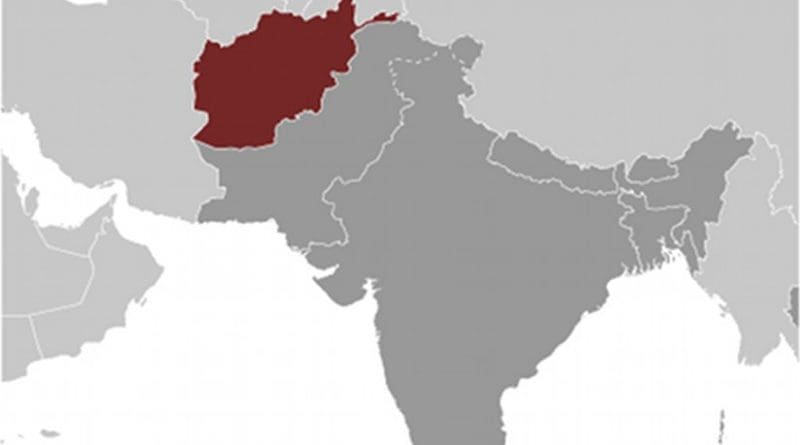India-Afghanistan: Interesting Times Ahead – Analysis
By IPCS
By Rajeshwari Krishnamurthy*
India-Afghanistan relations took an interesting turn in November 2015. In the span of a month, New Delhi hosted at least two high-level visitors: Afghan National Security Advisor Hanif Atmar, and Afghan Deputy Foreign Minister Hekmat Karzai. Additionally, the Afghan Deputy Minister of Culture, Sayed Mossadeq Khalili, too visited New Delhi to address an academic conference.
Atmar’s visit followed an invitation from his Indian counterpart, Ajit Doval. Atmar met Doval and the Indian Minister of Defence Manohar Parrikar, and discussed security-related cooperation in detail. Close on the heels of this visit was that of Karzai’s, who met Indian External Affairs Minister Sushma Swaraj and Indian Foreign Secretary S Jaishankar, among others. This visit was centred primarily on the “operationalisation of the [India-Afghanistan] strategic partnership [agreement]” signed in 2011. What Kabul expects from the 2011 agreement was well-illustrated in Karzai’s 17 November Op Ed in The Hindu, titled ‘Traditional friends, modern allies’.
More importantly, details of Indian Prime Minister Narendra Modi’s first official visit to Afghanistan, scheduled to take place in the near future, were discussed. This visit might coincide with the inauguration of the Afghan parliament building that India is constructing.
India and Afghanistan: May 2014-November 2015
These visits and exchanges have altered the general perception of a limbo in Kabul-New Delhi relations. That perception had set in when the then newly-elected Afghan President Ashraf Ghani made peace overtures to Pakistan in an attempt to draw them into to the conflict resolution process. India took a ‘wait-and-watch’ approach vis-à-vis deepening engagement with Afghanistan, and Kabul’s preoccupation with Islamabad, Washington and Beijing made it appear as though India was relegated to the side-lines.
Following the debacle over former Afghan Taliban Chief Mullah Omar’s death, his subsequent succession by Mullah Mansour and the Kunduz siege, the dispensation in Kabul, which was attempting to reorganise its equation with Pakistan as priority, decided to move on.
Furthermore, the US appears to be increasingly desperate for any deal that can help them project successes achieved in Afghanistan, especially in the wake of the ongoing discussion on a nuclear deal for Pakistan. This was evident in the 4 November 2015 statement by Captain Jeff Davis, USN, Director, Defense Press Operations, at the US Department of Defense Briefing for Foreign Journalists, in which he said, “…What we’re not doing counterterrorism operations against is the Taliban. We don’t – we actually view the Taliban as being an important partner in a peaceful Afghan-led reconciliation process. We are not actively targeting the Taliban.”
Meanwhile, although the reconciliation process is not dead yet, the Afghan Taliban’s attacks on Afghans and Afghan territories still continue; and the Afghan National Security Forces are stretched extremely thin. Furthermore, the Afghan public’s perception of the coalition government is at an all-time low. Kabul is hard-pressed to deliver. Afghanistan will not settle for just any deal. Their priorities, especially on security matters, are clear. They are unlikely to accept any lopsided and/or incomprehensive bargain; and they definitely do not take the evolving undercurrents lightly.
Their reaching out to India, and India’s receptiveness follows this scheme of events. This is not any policy shift from the Indian side. India had not made any dramatic changes to its Afghanistan policy in the first place – all it did was take a more measured approach than before, without interference and with Afghanistan taking the lead in its own dealings. At the most, one could say India continued its engagement with Afghanistan while simultaneously accepting the altered procedure to do so, and it appears to be willing to accept the new alteration as well. This is not ill-advised, and New Delhi will continue maintaining positive relations with Kabul.
Nonetheless, India still does not fall in the inner core of Ghani’s ‘Five Circle Foreign Policy’. Conversely, the US, Pakistan and China, do.
Signalling and Symbolism
Symbolism is key here. There might be an opportunity for New Delhi to make a positive difference to the peace process. India could reach out to Yunus Qanuni, the newly-appointed chief of the Afghan High Peace Council, which is tasked with negotiating with the Afghan Taliban.
He has held various positions: he is a former Afghan vice president, the former speaker of the Wolesi Jirga (lower house), and the former minister of interior of the erstwhile interim government of Afghanistan, among others. Additionally, he is not viewed entirely as an adversary by the Afghan Taliban. In fact, he was one of the seven Afghan leaders proposed by the Afghan Taliban to conduct negotiations with. Most importantly, India holds a good place in Qanuni’s mind and experiences. New Delhi should build on this connection, engage with him, and identify ways in which we can contribute to the peace process.
While the Kabul-New Delhi bilateral has always remained warm, India has consistently chosen a measured stance for a variety of practical reasons. India has not involved itself in the Afghan peace process yet as it cannot offer much if things fall apart. Therefore, any further engagement on that front should be purely based on an assessment of the prospect of positive outcomes; how far India can go, practically, keeping its own compulsions in mind; and only at a request from Kabul.
Most of all, New Delhi, while working towards contributions that are positive for Afghanistan in whichever measure, should try and avoid getting entangled in the new-age Great Game afoot in the region. For that, India will have to express its stance on how it plans to engage. To that end, Modi’s Kabul visit will be a moment India can use to vocalise how it defines its role and place in that region.
* Rajeshwari Krishnamurthy
Research Officer, IReS, IPCS
Email: [email protected]

